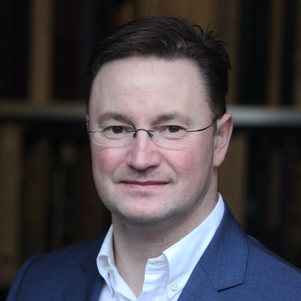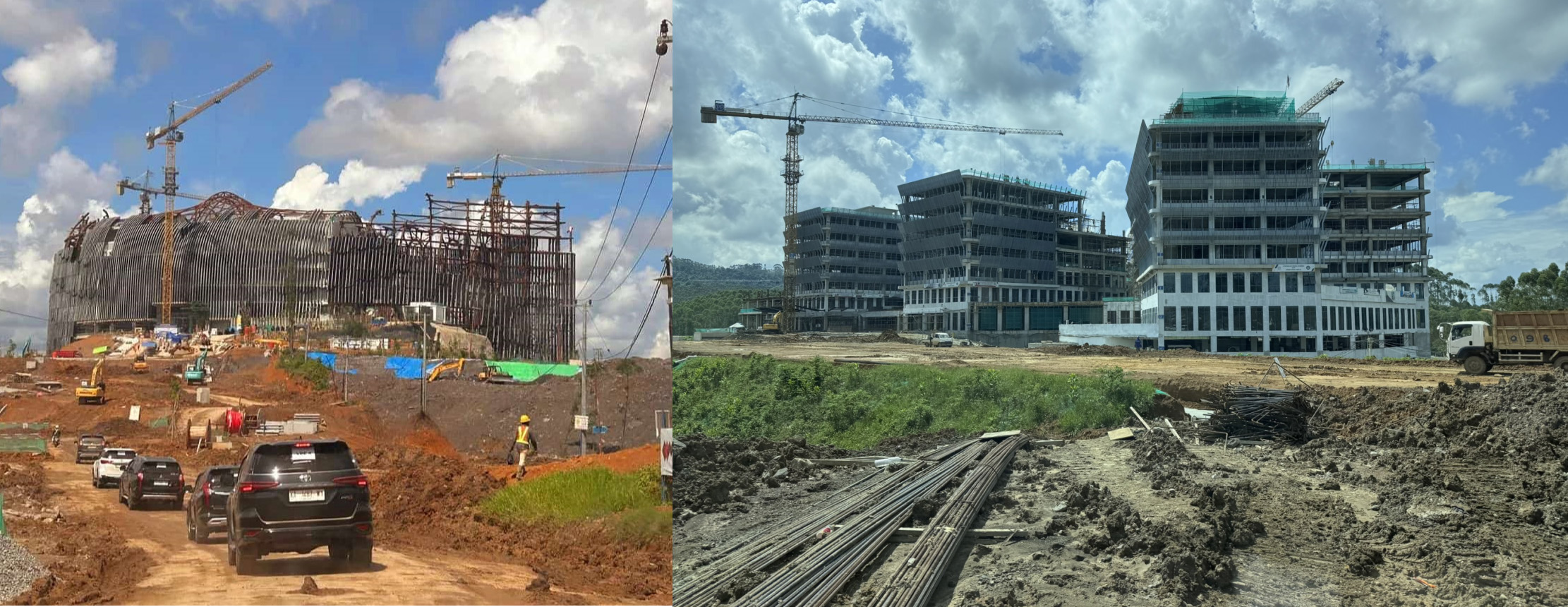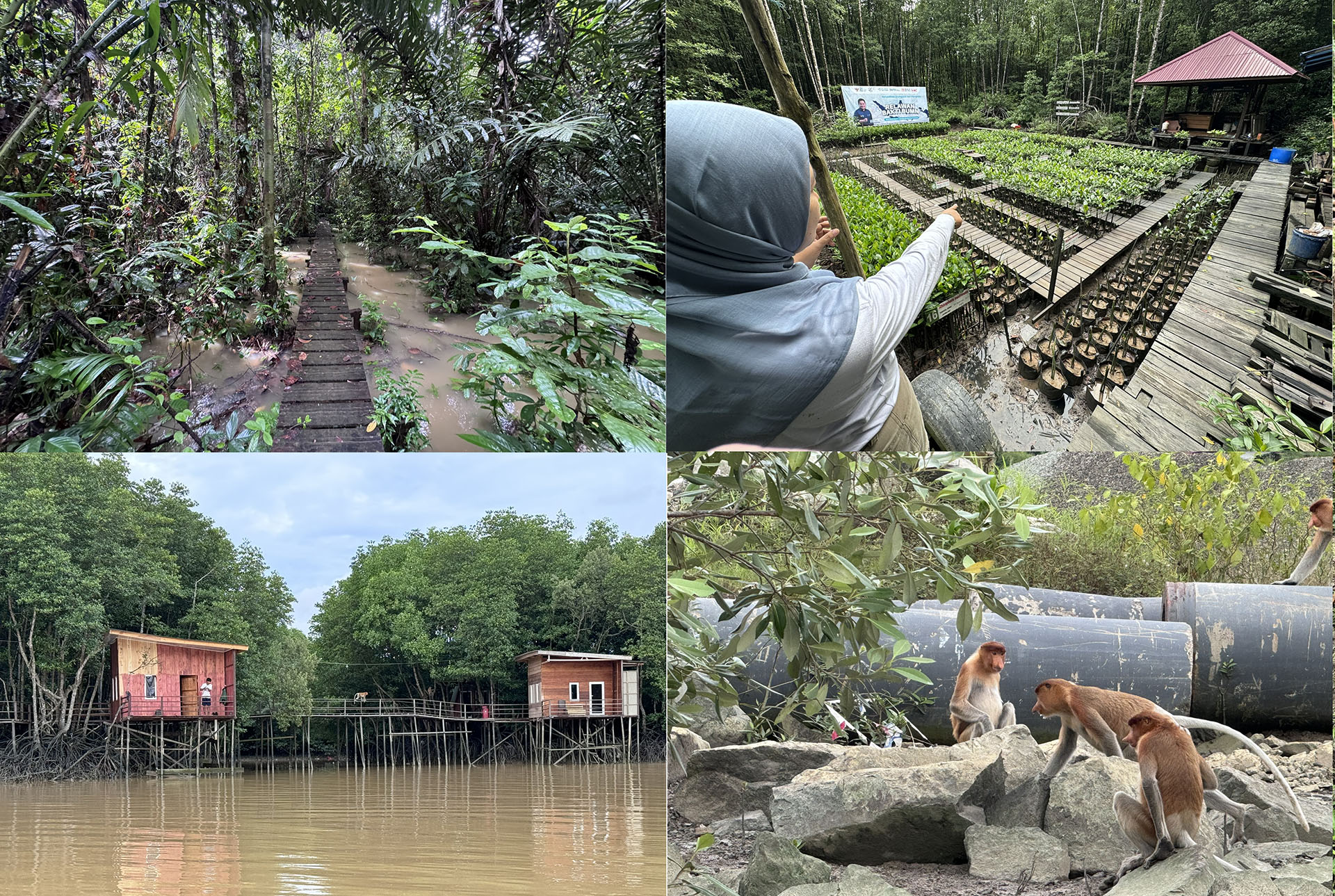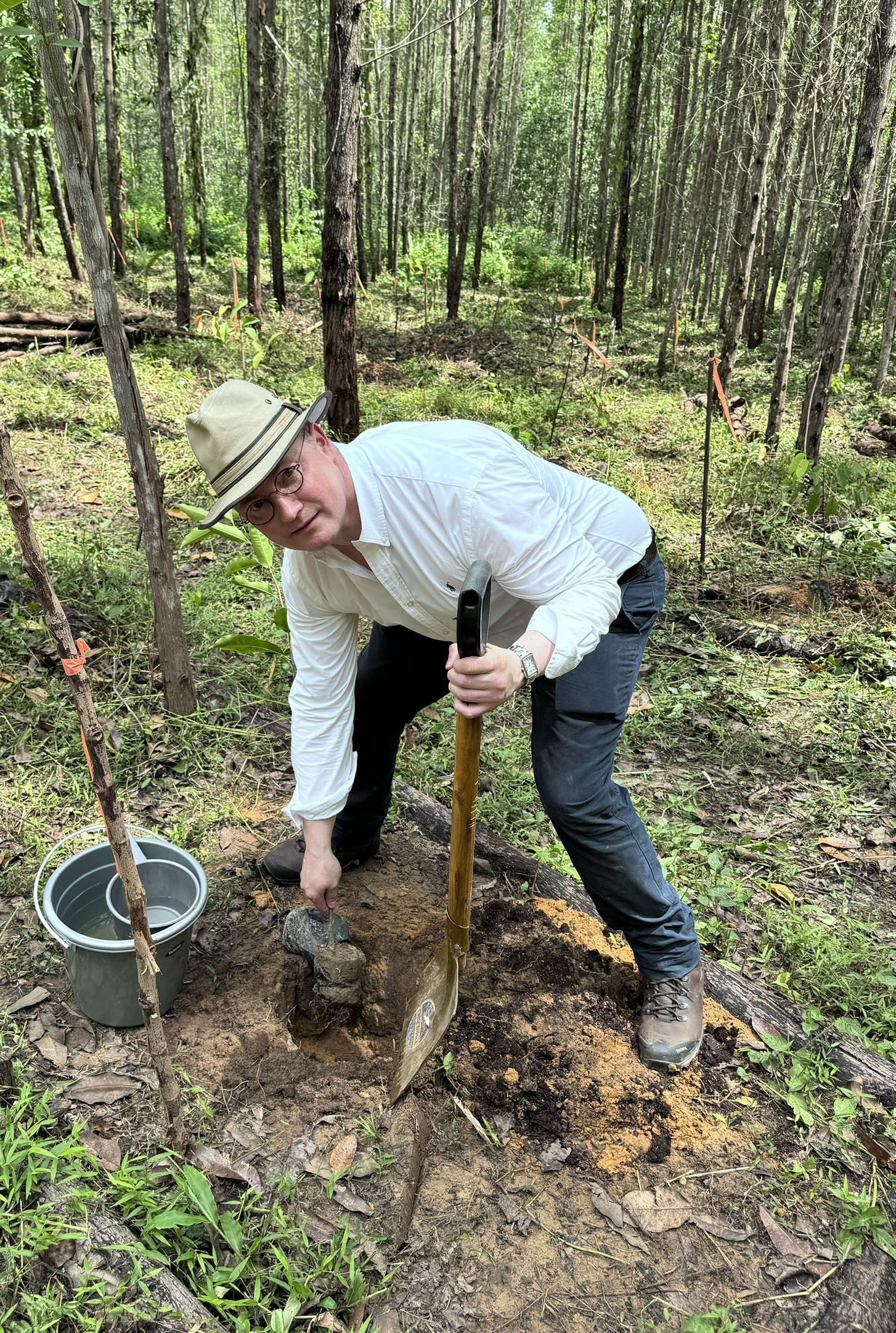How can BK contribute to a brand new capital
An extraordinary project is underway in Indonesia's East Kalimantan province, on the island of Borneo. The hills, which were mostly covered by eucalyptus plantations just last year, are currently a tangle of roads, construction sites, pipelines, power cables... This area, comparable in size to the province of South Holland, will become Indonesia's new capital: Nusantara. Professor Steffen Nijhuis (Urbanism) visited the area as part of a delegation of the Universities Leiden-Delft-Erasmus (LDE). He considered how LDE, and specifically Bouwkunde, can contribute to this project.
The term 'Nusantara' is intertwined with Indonesia's history. From its original meaning, the 'outer islands' of Javanese kings, the term has emerged in recent years as a generic name for Indonesia and even a slogan for national unity. A fitting name, then, for this ambitious plan. With an ambitious schedule: 17 August 2024 should see the official opening! But according to Steffen, there is still plenty to do for LDE afterwards: "Construction will continue for decades, and in that quieter phase I hope our knowledge will prove useful."
What stood out to you during your visit?
"We visited the city under construction and talked to officials and project managers. They are all experts within their fields, but many of them face enormous tasks at a relatively young age: for example, how do you build completely new infrastructure and protect nature at the same time? We also talked to leading scientists. I was very impressed by their knowledge of ecology and water-sensitive design. But I sometimes missed the long-term and interdisciplinary thinking: exploring connections between science, engineering, and design."

Prof.dr.ing. Steffen Nijhuis

"I also visited nearby reserves of rainforest and mangrove forest. There I met local experts and communities working to protect and restore biodiversity. Thanks to them, the reserves continue to function as fish hatcheries, coastal protectors, sources of materials and food, and tourist attractions. I saw dolphins swimming around and proboscis monkeys in the trees. These groups can teach us a lot! For example, about circularity, ecological management, and natural protection from erosion, flooding, and drought."

How might LDE contribute to Nusantara?
I also put this question to Professor Wim van den Doel, dean of LDE. He explains: "LDE wants global impact, and the government of Indonesia offers us an excellent opportunity here. The construction of Nusantara is basically in a huge living lab to test the concept of a 'forest city': a sustainable city in harmony with a tropical ecosystem, something that has never been tried before." Both Wim and Steffen mention that the three universities can each contribute on the basis of their specialities. "Leiden is among the global leaders in ecological and anthropological research, Erasmus in business and public administration, and Delft in technology and design."
According to Steffen, LDE should aim to: "train civil servants and professionals, set up joint research projects, and exchange students." Wim confirms: "LDE is starting a consortium with 5 Indonesian universities, funded by the Indonesian government. I expect the first researchers will soon be starting. Also, the first LDE minor on Nusantara will start on 1 September 2024 in Jakarta, and we are working on creating an annual 'thesis lab'. Both are open to both Dutch and Indonesian students." Steffen expects that the first BK graduation projects in and about Nusantara will start as early as next year.
And how can specifically BK contribute?
Steffen: "I think we as faculty have a lot to offer during the development of Nusantara. Our students and researchers are trained in planning and design across scales: housing - neighbourhood - city - region as well as species - area - system. Moreover, we can provide expertise in future-proof development, nature-inclusive construction, water management, social inclusion, renewable energy, regional development, landscape architecture, urban planning, and architecture."
"I envision that BK can help train Indonesian students, officials, and professionals; that our researchers initiate joint projects with Indonesian colleagues; and that experts from both countries form an advisory board. This board could, for example, work to steer funding from the Indonesian government towards sustainable, inclusive, and ecologically sound urban development."
Why is collaboration so important?
"To encourage sustainable development and prevent problems. I saw an example which really affected me: a motorway across a forested slope, close to the coast. A barrier to both people and ecosystems, which is now also sinking and floods regularly. By thinking integrally and contextually, you can avoid such situations. I foresee a similar risk with the eucalyptus plantations in Nusantara. If these are all cut down, problems like soil erosion will arise. It is better to gradually transform the plantations by planting indigenous trees before clearing the eucalyptus."

"On the other hand, we also need to pay close attention and learn from local partners, for instance in knowledge transfer and project proposals. Construction in Indonesia brings challenges we do not always anticipate. Humidity and heat are a top priority there. We can learn a lot in that respect from local traditional architecture and urban planning, which has developed over centuries to address those very challenges."
More information
All images are created by and owned by Steffen Nijhuis.
Read more about the cooperation between LDE and the Indonesian government on the website of LDE.
